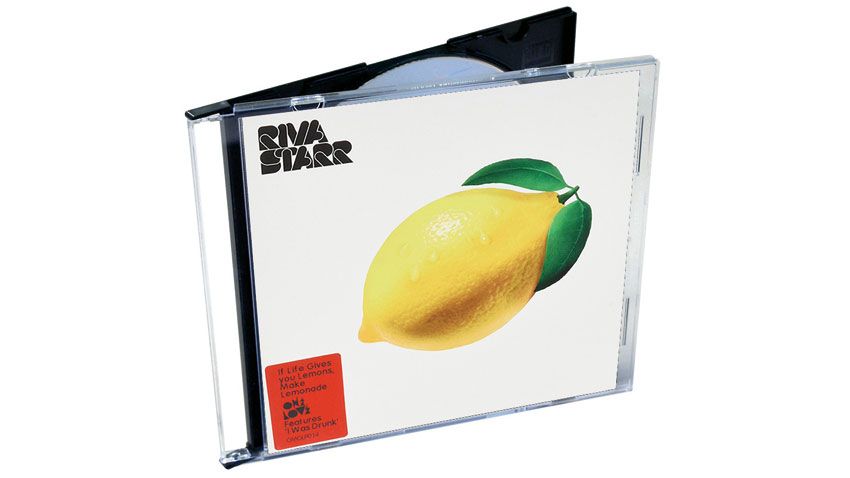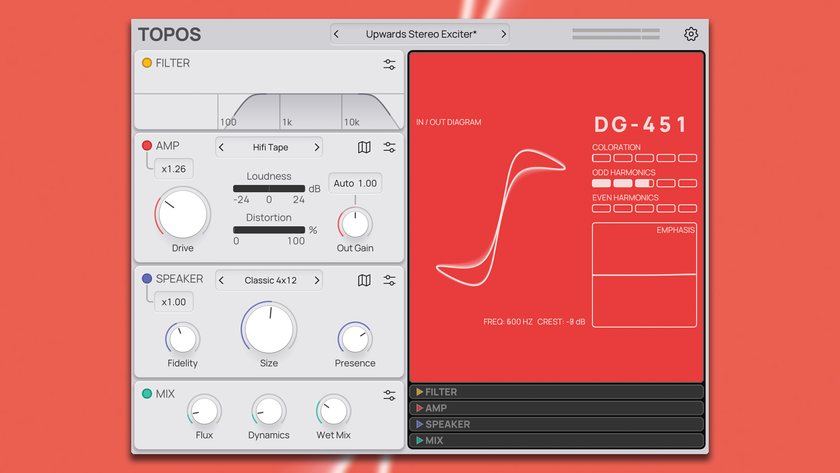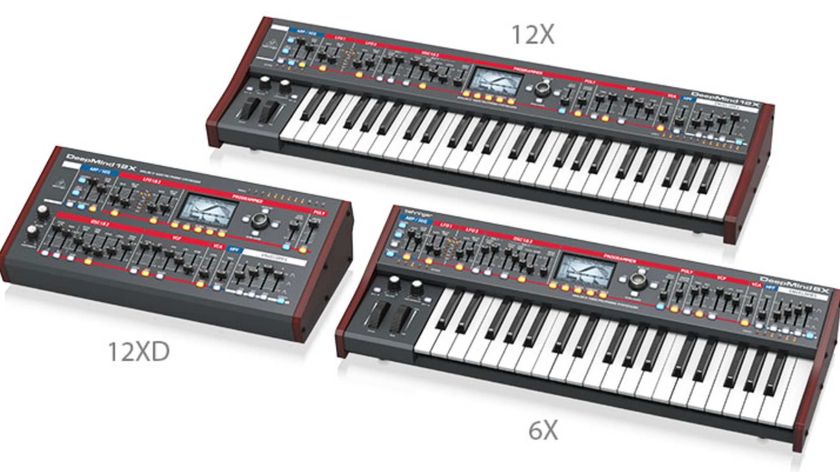Classic album: Riva Starr on If Life Gives You Lemons, Make Lemonade
Stefano Miele takes us on a retrospective tour of his awesome 2010 dance music long-player

Every last track on Stefano Miele’s debut as Riva Starr is as zesty fresh as the plump citrus fruit that adorns the album’s cover. From the woozy, boozy, devil-may-care opener, I Was Drunk, to the pumping classic house throwback, Tribute, there’s not a lemon among ’em.
“I knew I wanted to build an album that was different and eclectic - that was my style,” says Miele. “I wanted every song to stand out, and it all be a proper statement, from the title onwards.”
For Miele the proverbial phrase in question has everything to do with making the most of your gifts, and his gift as a producer is unwavering eclecticism, and the ability to cram joy into every last second of his music.
“After analysing myself, I found that the best thing about my style was that I hate doing the same thing over and over, and always want to be positive. They’re my lemons [laughs]. So I knew I wanted to make an album that was fun and changed ideas and music throughout.”
And, boy, does it. Besides the two aforementioned classics that bookend the LP, he uses the other nine tracks to takes us back to his breakbeat roots (when he ran under the name of Madox) on China Gum; flip it up with grime chatter on the 303 deep roller, Dance Me; get tribal on [the Carl Cox favourite] Maria; bring back 90s Italio-house with Caballeros; and get live and jazzy on Riva’s Boogaloo.
“I love to change it up,” says Miele. “It keeps me fresh. If I don’t have fun in the studio, it’s very hard for me. I think that producing is like football, or something similar. You must always train. If you don’t train constantly you end up losing the touch.
“So I always try and improve myself, find new techniques, and develop new ideas. If I hit on something that works, the challenge is to do something different the next time and make that work just the same.”
Get the MusicRadar Newsletter
Want all the hottest music and gear news, reviews, deals, features and more, direct to your inbox? Sign up here.
Miele continues to release under his Riva Starr moniker, with his latest 12", Adventures In Drums out now on Crosstown Rebels. Here, he takes us through If Life Gives You Lemons… track by track.

I Was Drunk
“The album took me around one year to finish. This was the first track. At university, I was interested in traditional folk music. Back then, there was a lot of interest in all this, with the Balkan sound coming through, so I started playing with some of the samples that belonged to my culture.
“I got some ideas going, then I hooked up with Nôze, who were these two gypsy dudes making waves on the Get Physical label with some very weird tracks. Obviously they caught my attention, because anything weird - I’m the one [laughs].
“They said, ‘OK. We will try and work on it - maybe next week. We’re very busy...’ Half an hour later, they sent it over with the main idea for the chorus. I was blown away.
“I normally always do the mixdowns of my tracks, but I couldn’t find the right balance for this, so it stayed on my hard drive until a month before the album was released.
“I wasn’t even playing it out. I was playing more bassy dub at the time. I knew it was a fun track, but I wasn’t sure what to do with it. It sat around while I worked on other tracks.”
China Gum
“It’s called China Gum because of the Chinese music samples. I actually have a degree in Chinese. Six months before I moved to London in 2007, I spent six months in China finishing my degree.
“I went travelling in the countryside, studying the music there and the instruments. I ended up in this little record shop that had a collection of copied CDs, wrapped in rice paper. They weren’t even official releases. They were full of field recordings of traditional music from all these villages. They were super rare, so I jumped on them like a kid on a cake.
“One of the tracks had some drums and voices I used for the main drop here, then I went crazy with analogue synths over the top. It’s a breakbeat tune, basically, done in the transition between Madox and Riva Starr, which you can hear.”
Bulgarian Chicks
“I was in touch with these bands that were doing this kind of electronic folk music. One of them was the Balkan Beat Box, from Tel Aviv, and they’re amazing. So, we were good friends, and I asked them if I could sample one of their tracks, Bulgarian Chicks.
“Funnily enough, it’s the track that SIS sampled for his tune Trompeta. I asked them to use the sample to make a track, then got talking to Jesse Rose about doing a track together, so we did this.
“It’s a very simple beat, and has a very weird arrangement, but it’s our interpretation of that Balkan idea. It was a very trendy sound by the time I released the album.”
Dance Me
“After China Gum and Maria came out, I hooked up with a guy called Trim. He was a grime type MC who was down with the Roll Deep crew. We had some friends in common.
“At the time, there was this San Francisco hip-hop music called hyphy around. I wanted to do something with that, with a 303-type of bassline on it.
“He came to the studio and we spent a day there, chatting, having fun, and making this track. It came together very easily, I must say.
“The track is between this ragga style, as he’s got a Jamaican flavour, but with this English way of rapping. Then you add the 808 bass and 303 on top and you have quite a mix.”
Black Mama
“I’m a music collector. I have a lot of vinyl. I was digging through it and I came across this sample from the Lafayette Afro Rock Band. I really wanted to do this more electro type of track, as a kind of tribute to my breakbeat background.
“After I recorded the sample in and tried to make a beat around it, I ended up talking to this French producer behind the Lafayette Afro Rock Band. I just had to get in touch. He was a very old man, hopefully still alive now. He was kind enough to clear the sample for us. We were a really small label, so that was great.
“I still play this track today. I see a lot of people like A-Track still playing it. The beat is pretty tough. A proper 808 thing.”
Black Cat, White Cat
“I was watching this video of a guy online playing a violin solo, and I fell in love with it and sampled it. I asked another local band, who were doing some gypsy sounds, to replay it, because the quality of the original was crap.
“If you listen to the violin solo now, you can hear two layers. One is the replay, the other is the original sample, probably taken from YouTube. It’s got that crunchy sound, with the cleaner sound from the band on top, which contributes to make the overall sound.
“You can feel the arrangement get weirder with click and crackles in there. It all made for a very different sound to the standard house tunes you’d be listening to at the time. They were a bit more linear. Here, there were more chops and craziness.”
“I still play this track today. I see a lot of people like A-Track still playing it. The beat is pretty tough. A proper 808 thing.”
Once Upon A Time In Naples
“The next four tracks all draw on my passion for more jazzy, traditional music. This one has a really slow guitar sample, pitched up. I think I did it with Logic’s EXS24 sampler.
“Then I added an electro/breakbeat beat to it. It’s very vibey. I just wanted to have a track that was different. There was no point making an album with all house tracks, so this was me being eclectic. It was picked up by [UK reggae selector] David Rodigan a lot in his shows.”
Maria
“This was released on Kindisch a few years before the album. I still felt it was so, so fresh. It was my first proper tune. It just fit in with the album, on the overall eclectic vibe, so I decided to add it to the track list.
“I got so much support for this track. And people still play it now. I still see Carl Cox drop it in his sets every once in a while. He was a huge supporter of it when it came out. I still think it’s one of the most sold tracks on that label, so far.”
Caballeros
“This is a bit of a tribute to some 90s kind of house. It has a… I wouldn’t say ‘Eurotrash’… but, you know, Ramirez? All that kind of stuff that was coming from Italy back then - all big and brassy. Very 90s.
“The idea was to do some kind of big, tribally sort of track, with those kinds of samples in. When I was releasing as Madox, doing my breakbeat project, my label was Mantra Breaks, which was part of Expanded Music in Italy. They have all these Euro house tracks from the 90s. They had Ramirez’s Hablando on there, so I asked them to use that sample, which is the main kind of accordion sample in Caballeros.
“They were all friends, so I was able to clear this sample, which otherwise would have been impossible, as it was a massive tune back then.
“It turned out really cool. It was mainly dub in the vibe. Then there is this big drop, with this accordion in. It came together really easily.”

Riva’s Boogaloo
“This comes from my passion for jazzy, swing stuff. It’s more on that jazzy tip. I knew this track was mainly for the album. It’s very hard to play out. It’s just a track that’s good to listen to.
“There is a nice drum break in there. It’s all live samples. I used to surf a lot through my vinyl, looking for cool drum breaks. I’m actually going to be releasing a lot of new stuff with live drummers on my label, Snatch!
“I want - and wanted - to use people who are actually playing on the tracks and not just relying on electronic sounds. I feel like it’s about time to push some different sounds in dance music again.”
Tribute
“I decided to end the whole album on a tribute, obviously to Mr Fingers’ Can You Feel It. It’s a cover that is half a cover, in a way. The vibe and idea is the same, but I replayed everything, and the notes are different and the arrangement is different, so there is just a hint or nod to the Mr Fingers track.
“I’m still playing this track out these days, to be honest. It’s a very good track and the perfect one to finish up the album.”


Future Music is the number one magazine for today's producers. Packed with technique and technology we'll help you make great new music. All-access artist interviews, in-depth gear reviews, essential production tutorials and much more. Every marvellous monthly edition features reliable reviews of the latest and greatest hardware and software technology and techniques, unparalleled advice, in-depth interviews, sensational free samples and so much more to improve the experience and outcome of your music-making.

"Reggae is more freeform than the blues. But more important, reggae is for everyone": Bob Marley and the Wailers' Catch a Fire, track-by-track

“Part of a beautiful American tradition”: A music theory expert explains the country roots of Beyoncé’s Texas Hold ‘Em, and why it also owes a debt to the blues










